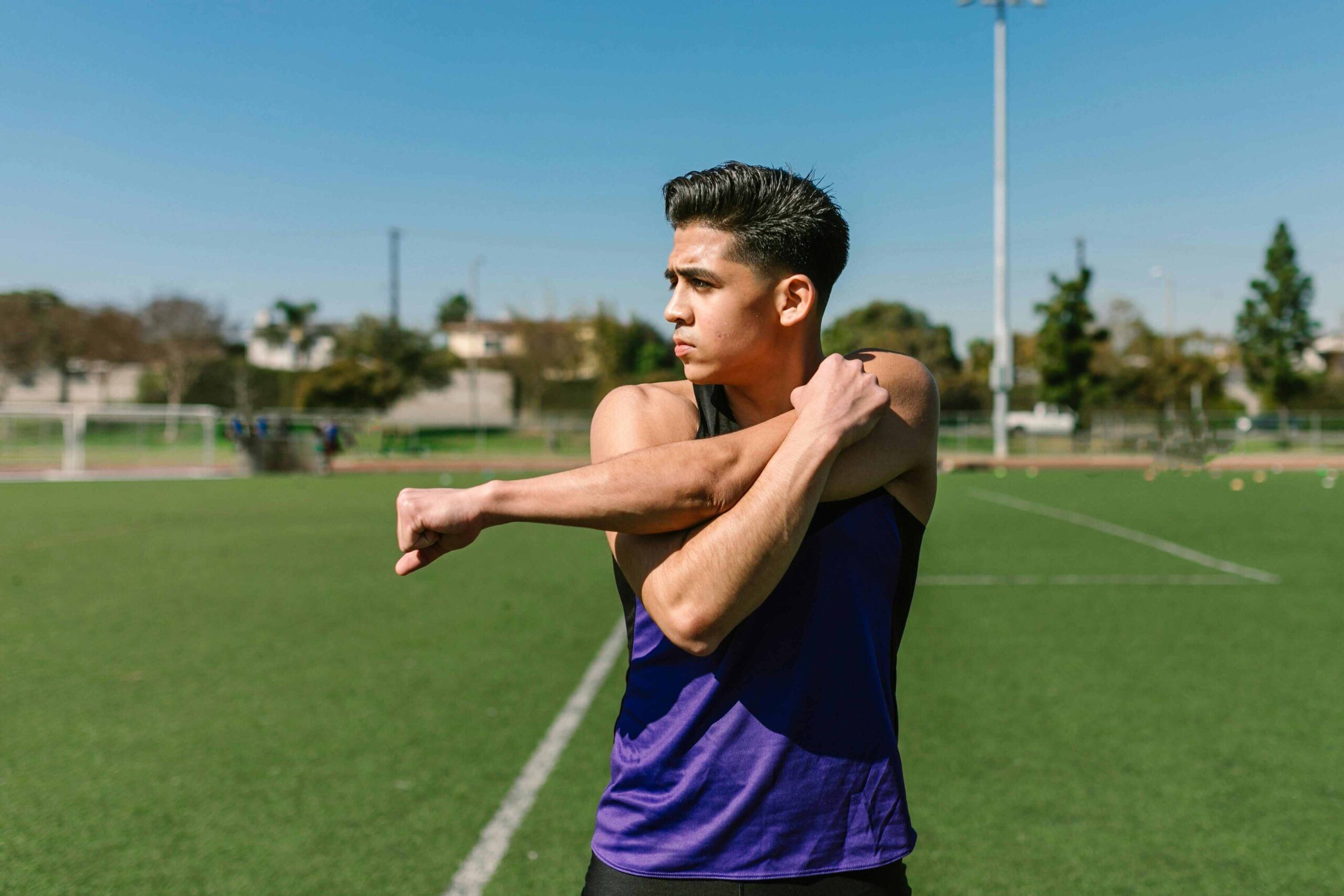
Injury Prevention Tips for Amateur Athletes
Article Level: Proficient Level of English
Explanation: This article provides essential injury prevention tips for amateur athletes, focusing on warm-ups, proper technique, strength training, rest, and body awareness to help reduce risk and boost performance safely. Ideal for those seeking a balanced and sustainable fitness routine.
Commonly Used Words from the Article
-
Prevent /prɪˈvɛnt/ (verb): To stop something from happening.
Warming up can help prevent muscle injuries. -
Fatigue /fəˈtiːɡ/ (noun): Extreme tiredness from mental or physical effort.
Training too hard without rest leads to fatigue. -
Technique /tɛkˈniːk/ (noun): A way of carrying out a particular task.
Learning the correct technique can reduce injury risk. -
Recovery /rɪˈkʌvəri/ (noun): The process of returning to a normal state of health.
Taking rest days is vital for recovery. -
Balance /ˈbæl.əns/ (noun): A state where different things exist in equal or correct proportions.
A balance between training and rest improves performance.
Audio File of the Article
Read more: Injury Prevention Tips for Amateur Athletes

Injury Prevention Tips for Amateur Athletes
Engaging in sport and physical activity is highly beneficial for both mental and physical health. However, for amateur athletes, the risk of injury can increase significantly if appropriate precautions are not taken. Whether you run recreationally or play in a weekend football league, understanding how to prevent injuries is essential for long-term success and enjoyment.
1. Warm Up and Cool Down Properly
One of the most important yet overlooked aspects of injury prevention is warming up and cooling down. A proper warm-up gradually increases your heart rate, loosens the joints, and prepares your muscles for physical activity. It should include light aerobic activity and dynamic stretching. Conversely, cooling down after exercise helps the body return to its resting state and can prevent muscle stiffness and soreness.
2. Listen to Your Body
Amateur athletes often push themselves too hard, especially when they feel motivated. However, it is crucial to recognise the difference between muscle fatigue and pain that signals an injury. Ignoring discomfort can lead to more serious conditions such as sprains, strains, or tendonitis. If something feels wrong, rest and seek professional advice.
3. Use Correct Technique and Equipment
Improper technique during exercise or sport is a major contributor to injury. Taking the time to learn the correct form—whether for lifting weights or running—can drastically reduce the chance of harm. Likewise, wearing the right footwear and using appropriate gear tailored to your activity is vital.
4. Don’t Skip Strength and Flexibility Training
While cardio is often the focus for amateur athletes, strength and flexibility are equally important. Strengthening muscles around vulnerable joints, such as knees and ankles, provides better support. Additionally, flexibility training like yoga or Pilates can improve balance and reduce the risk of overuse injuries.
5. Schedule Rest Days
Rest is as important as training. Your muscles need time to recover, repair, and grow. Overtraining can lead to fatigue, burnout, and a higher risk of injury. A balanced training schedule that includes rest days will enhance performance in the long run.
In summary, preventing injuries as an amateur athlete is about preparation, awareness, and balance. By integrating warm-ups, strength training, rest, and proper technique into your routine, you can stay active and injury-free.

Grammar Notes
Grammar Structures Used:
-
Modal verbs for advice: should, can, need to
-
Present simple for general truths and habits
-
Passive voice: is worn, is taken
-
Conditionals for advice: If something feels wrong, rest…
Mini Grammar Lesson: Modal Verbs for Advice
Modal verbs such as should, need to, and can are commonly used to give advice or express necessity in English.
-
Should: used for advice
-
You should warm up before training.
-
-
Need to: expresses obligation or necessity
-
You need to rest when you feel pain.
-
-
Can: expresses possibility
- Ignoring discomfort can lead to injury.
Join Our FREE English Grammar Course and improve your grammar skills!

Five Questions Based on the Article
-
-
Why is warming up important before physical activity?
-
-
What should an amateur athlete do if they feel pain during training?
-
How does strength training help prevent injuries?
-
Why is using proper technique crucial in sport and exercise?
-
What role does rest play in injury prevention?
Join Our FREE Weekly English-speaking Class and improve your speaking skills!

We’d love to hear your thoughts! Join the conversation by leaving a comment below. Sharing your insights, questions, or experiences can help you connect with others in our English learning community. It’s a great way to practice your English skills, engage with like-minded individuals, and improve together. Don’t be shy—jump in and let’s keep the discussion going!

 EnglishMasteryHub
EnglishMasteryHub